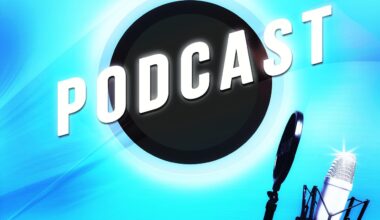Intellectual Property Rights in Activist Content Creation
In today’s rapidly evolving digital landscape, social media serves as a crucial platform for activists to share their messages. However, it’s essential to understand the implications of intellectual property rights when creating and sharing content. Activist content often includes images, music, and video that may feature copyrighted materials. This raises the question: how can creators navigate these legal waters while spreading their influential ideas? Understanding copyright, fair use, and licensing becomes imperative for those involved in social media activism. The ethics behind using another’s work, even when well-intentioned, can lead to controversies that detract from activism. Activists must interpret laws accurately, ensuring an ethical approach while also harnessing the power of digital platforms. Moreover, when using third-party content, proper attribution is not only a legal necessity but also an ethical obligation. By respecting original creators, activists can foster a culture of mutual support and can legitimately encourage a collaborative environment. This paragraph aims to highlight the significance of intellectual property rights in activism by demonstrating how ethical content creation strengthens movements. Knowledge of these rights ultimately empowers activists in their efforts for social change, establishing more robust narratives and connections.
The digital age has introduced various forms of content that activists can leverage to amplify their messages. Social media platforms such as Twitter, Instagram, and YouTube enable creators to reach wide audiences with their impactful narratives. However, the reuse of existing content poses a significant ethical dilemma related to intellectual property rights. Activists frequently draw inspiration from established media, which raises questions of ownership and attribution. For instance, when an activist uses a famous photograph or video clip, they must consider whether they have permission to utilize that content. This requires thorough understanding of copyright laws and a commitment to ethical practices. Activists can explore options like obtaining licenses or using media under creative commons for their projects. By implementing these strategies, they demonstrate respect for original creators while engaging their audience. Furthermore, transparency about the sources of inspiration can foster trust and support among followers and fellow activists alike. When activists prioritize ethical considerations, they enhance their credibility and promote a culture of respect within the community. This ultimately contributes to the sustainability and integrity of social media activism as a powerful tool for change.
The Role of Fair Use in Activist Content
Fair use is an important doctrine that allows certain limited use of copyrighted material without seeking permission. It plays a crucial role for social media activists who wish to transform and utilize existing materials. The fair use exception hinges on specific factors, including the purpose of use, the nature of the material, the amount used, and the market impact. For example, an activist creating a multimedia collage that critiques existing media may qualify for fair use if their work adds new meaning or commentary. However, the vagueness of fair use can lead to confusion and misuse. Therefore, activists must analyze their creations carefully to ensure that the content they produce remains within permissible limits. Engaging with fair use ethically helps preserve the integrity of the movement while empowering creators to share their messages. This awareness can fuel innovative content production that showcases diverse perspectives without infringing upon others’ rights. Ultimately, by understanding fair use, activists can effectively utilize existing content to contribute to compelling narratives without compromising legality. This reflects both ethical responsibility and creative innovation in an increasingly connected world.
Another significant aspect of intellectual property in social media activism centers around attribution and credit. While reproducing content, activists must take care to acknowledge the original creators appropriately. This not only mitigates the risk of potential legal repercussions but also honors the creators’ work. Proper attribution can significantly influence how an activist’s content is perceived, as recognizing others fosters a sense of community and collaboration. In many instances, the act of crediting establishes a network of mutual respect, which can lead to partnerships and shared resources among creators. Moreover, providing credit enhances the educational aspect of content, guiding followers to explore and understand necessary sources. This practice encourages the spread of information and increases the overall richness of the dialogue around specific issues. By fortifying this practice, activists contribute to a culture of appreciation within social media, ensuring that various voices are recognized and valued. As movements push for social change, fostering a collaborative atmosphere through proper attribution bolsters their integrity, aligning working collaboratively toward common goals.
Challenges of Copyright Infringement
Despite their best intentions, activists often face challenges related to copyright infringement when creating social media content. Inadvertent violations can occur when artists utilize someone else’s work without realizing the consequences of their actions. Such violations can lead to takedown notices, legal disputes, and damaged reputations that undermine activist efforts. The pressure to produce engaging content can cultivate a culture of hurriedness, where activists might skip necessary checks regarding permissions and rights. As social media users, activists must stay informed about copyright issues, navigating a complex landscape with an emphasis on ethical content production. Legal barriers may intimidate newcomers, but advocates for social justice should empower themselves through education. By familiarizing with copyright specifics, activists can make informed choices and avoid costly mistakes, ensuring sustainable practices. Moreover, they can utilize social media as a powerful platform for awareness surrounding copyright ethics itself. Engaging in ongoing dialogue about these challenges allows activists to strengthen their efforts without compromising their integrity or mission. This mutual understanding fosters resilience and growth, paving the way for more streamlined activism in the long run.
As activists increasingly rely on social media, they must navigate the intersection of ethics and intellectual property with care and consideration. Transparency, collaboration, and respect for others’ rights should define their practices. Many creative tools are available to help activists produce original content while honoring the works of others. Programs allowing for editing, remixing, and collaboration can empower activists to create something new while fostering an ethical framework around their efforts. Moreover, understanding licensing agreements can open doors for cooperation among creators, enhancing the quality of activism and its reach. Engaging with platforms offering collaborative spaces enables the sharing of knowledge and resources, as activists learn from each other’s experiences. This collaborative spirit brings together diverse skill sets, creating more impactful campaigns and raising awareness of various pertinent issues. Additionally, the conversations surrounding ethical practices can inspire a new generation of creators committed to respecting intellectual property rights. By ensuring their content is accessible, fair, and representative, activists can build a movement grounded in ethical practices and powerful storytelling. This enhances the community and efficacy of social movements in this digital age.
Conclusion: Building an Ethical Framework
In conclusion, understanding and respecting intellectual property rights is essential for social media activists aiming to create impactful content. By embracing ethical practices surrounding copyright, attribution, and fair use, activists can effectively advocate for their causes while maintaining the integrity of their creativity and work. The digital environment offers unique opportunities to educate one another about the ethical landscape surrounding content creation. Collaborating with others while respecting their works fosters a sense of unity and progress, benefiting the greater movement. Activists should also promote awareness of copyright issues within their communities to collectively address these challenges. This ongoing dialogue nurtures a culture that values creativity while ethically maintaining standards of accountability. Additionally, through the proper knowledge of rights and responsibilities, activists can confidently navigate the realms of social media while effectively communicating their messages. Ethical content creation ultimately enhances credibility, trust, and solidarity within the activist community. As movements continue to evolve, activists must champion these principles for sustainable practices, ensuring they contribute positively to the broader fabric of social change. By doing so, they can transform social media into a powerful tool for good, uniting diverse voices toward a common cause.
Creativity paired with ethics ensures that activism can thrive in our interconnected world. Social media presents an exciting opportunity for activists to connect with diverse audiences while promoting awareness. By focusing on intellectual property rights in their practices, these creators show respect for their predecessors, facilitating collaborative dialogue. Continued education about copyright issues and ethical standards will empower activists. Encouraging mutual respect and attribution helps govern a more sustainable activist culture, embracing shared responsibility for creating impactful narratives. Thus, comprehending these dynamics underscores the need for activists to navigate their work with informed considerations of creativity and ethics. In doing so, they can not only retain leadership and innovation but also promote a culture of understanding and respect within the realms of social media activism. The ongoing conversation surrounding intellectual property rights significantly enhances the quality of activism and solidarity within the community. In former times, concepts of copyright may have felt stifling. Still, rather, they can become a platform encouraging collaboration, creativity, and unity among diverse voices united by a common belief. As this movement progresses, empowering each other and properly crediting artists will expand opportunities for all.


